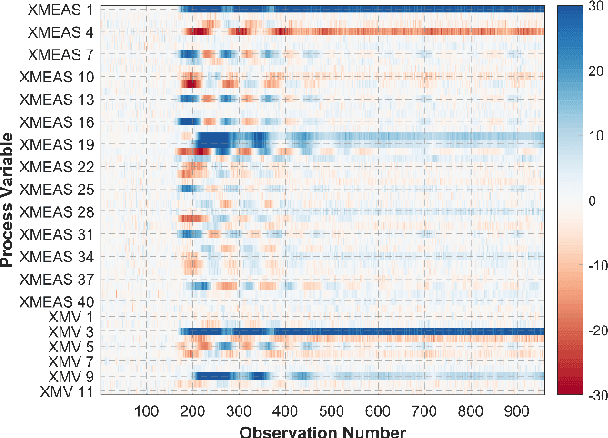Fault Detection and Identification using Bayesian Recurrent Neural Networks
Paper and Code
Nov 11, 2019

In processing and manufacturing industries, there has been a large push to produce higher quality products and ensure maximum efficiency of processes. This requires approaches to effectively detect and resolve disturbances to ensure optimal operations. While the control system can compensate for many types of disturbances, there are changes to the process which it still cannot handle adequately. It is therefore important to further develop monitoring systems to effectively detect and identify those faults such that they can be quickly resolved by operators. In this paper, a novel probabilistic fault detection and identification method is proposed which adopts a newly developed deep learning approach using Bayesian recurrent neural networks (BRNNs) with variational dropout. The BRNN model is general and can model complex nonlinear dynamics. Moreover, compared to traditional statistic-based data-driven fault detection and identification methods, the proposed BRNN-based method yields uncertainty estimates which allow for simultaneous fault detection of chemical processes, direct fault identification, and fault propagation analysis. The outstanding performance of this method is demonstrated and contrasted to (dynamic) principal component analysis, which are widely applied in the industry, in the benchmark Tennessee Eastman process (TEP) and a real chemical manufacturing dataset.
 Add to Chrome
Add to Chrome Add to Firefox
Add to Firefox Add to Edge
Add to Edge